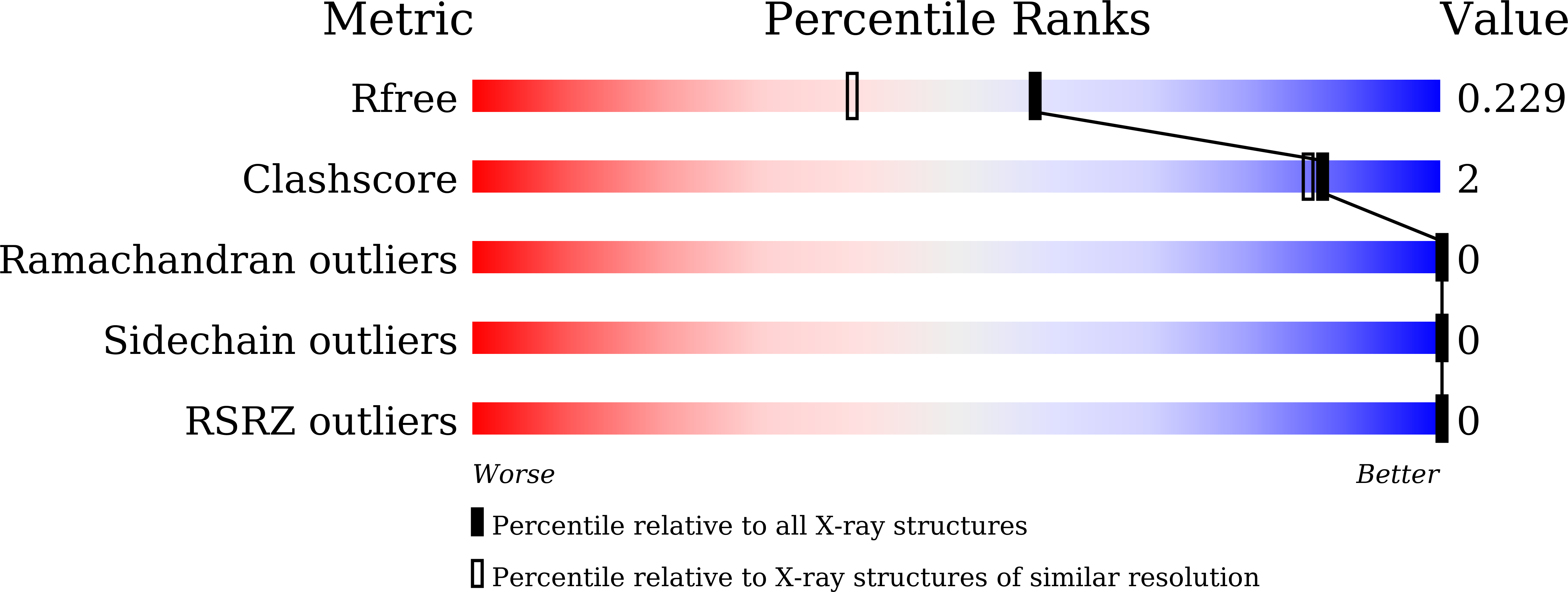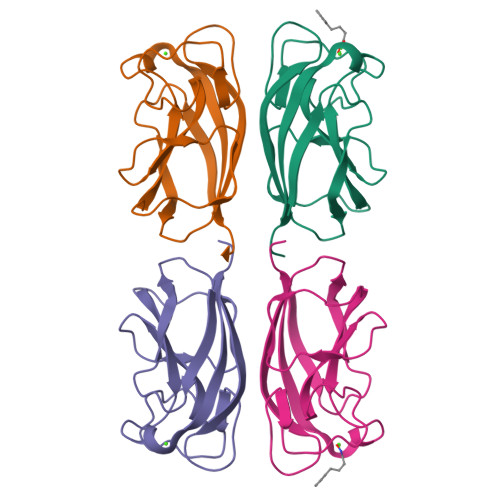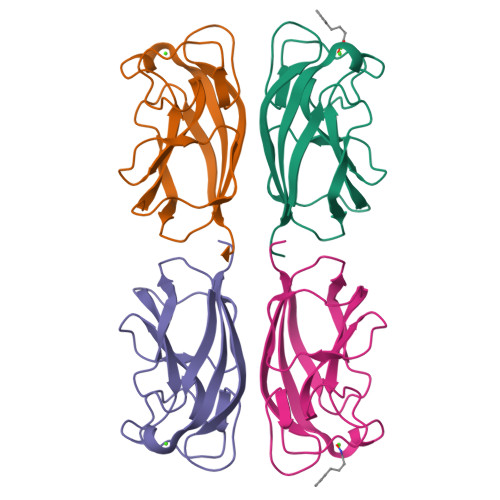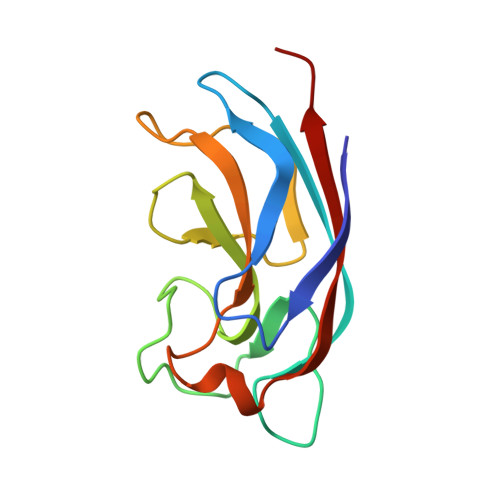Targeting undruggable carbohydrate recognition sites through focused fragment library design.
Shanina, E., Kuhaudomlarp, S., Siebs, E., Fuchsberger, F.F., Denis, M., da Silva Figueiredo Celestino Gomes, P., Clausen, M.H., Seeberger, P.H., Rognan, D., Titz, A., Imberty, A., Rademacher, C.(2022) Commun Chem 5: 64-64
- PubMed: 36697615
- DOI: https://doi.org/10.1038/s42004-022-00679-3
- Primary Citation of Related Structures:
7FJH - PubMed Abstract:
Carbohydrate-protein interactions are key for cell-cell and host-pathogen recognition and thus, emerged as viable therapeutic targets. However, their hydrophilic nature poses major limitations to the conventional development of drug-like inhibitors. To address this shortcoming, four fragment libraries were screened to identify metal-binding pharmacophores (MBPs) as novel scaffolds for inhibition of Ca 2+ -dependent carbohydrate-protein interactions. Here, we show the effect of MBPs on the clinically relevant lectins DC-SIGN, Langerin, LecA and LecB. Detailed structural and biochemical investigations revealed the specificity of MBPs for different Ca 2+ -dependent lectins. Exploring the structure-activity relationships of several fragments uncovered the functional groups in the MBPs suitable for modification to further improve lectin binding and selectivity. Selected inhibitors bound efficiently to DC-SIGN-expressing cells. Altogether, the discovery of MBPs as a promising class of Ca 2+ -dependent lectin inhibitors creates a foundation for fragment-based ligand design for future drug discovery campaigns.
Organizational Affiliation:
Max Planck Institute of Colloids and Interfaces, Department of Biomolecular Systems, Am Mühlenberg 1, 14424, Potsdam, Germany.


















